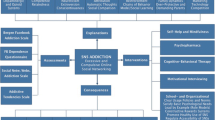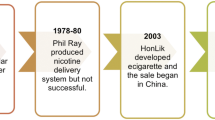Abstract
There remains a very high rate of smoked and smokeless tobacco use in the Western Pacific Region. The most recent findings from national adult tobacco surveys indicate that very few daily users of tobacco intend to quit tobacco use. In Cambodia, a nation that is predominantly Buddhist, faith-based tobacco control programs have been implemented where, under the fifth precept of Buddhism that proscribes addictive behaviors, monks were encouraged to quit tobacco and temples have been declared smoke-free. In the present study, we included items on a large national tobacco survey to examine the relation between beliefs (faith-based, other) about tobacco, health, and addiction among adults (18 years and older). In a stratified, multistage cluster sample (n = 13,988) of all provinces of Cambodia, we found that (1) 88–93% believe that Buddhist monks should not use tobacco, buy tobacco, or be offered tobacco during a religious ceremony; (2) 86–93% believe that the Wat (temple) should be a smoke-free area; (3) 93–95% believe that tobacco is addictive in the same way as habits (opium, gambling, alcohol) listed under the fifth precept of Buddhism; and (4) those who do not use tobacco are significantly more likely to cite a Buddhist principle as part of their anti-tobacco beliefs. These data indicate that anti-tobacco sentiments are highly prevalent in the Buddhist belief system of Cambodian adults and are especially evident among non-users of tobacco. Our findings indicate that faith-based initiatives could be an effective part of anti-tobacco campaigns in Cambodia.
Similar content being viewed by others
References
ADRA-Cambodia. (2010). Cambodia Action for Policy on Smoking and Health (CAPSH). from http://toh.adracambodia.org/projects/capsh/capsh.htm.
Butler, T. L., Fraser, G. E., Beeson, W. L., Knutsen, S. F., Herring, R. P., Chan, J., et al. (2008). Cohort profile: The Adventist Health Study-2 (AHS-2). International Journal of Epidemiology, 37(2), 260–265.
Ferry, L. H., Job, J., Knutsen, S., Montgomery, S., Petersen, F., Rudatsikira, E., et al. (2006). Mentoring Cambodian and Lao health professionals in tobacco control leadership and research skills. Tobacco Control, 15(Suppl 1), i42–i47.
Flaherty, J. A., Gaviria, F. M., Pathak, D., Mitchell, T., Wintrob, R., Richman, J. A., et al. (1988). Developing instruments for cross-cultural psychiatric research. The Journal of Nervous and Mental Disease, 176(5), 257–263.
Harvey, P. (2000). An introduction to Buddhist ethics: Foundations, values, and issues. New York: Cambridge University Press.
Merrill, R. M., Hilton, S. C., & Daniels, M. (2003). Impact of the LDS church’s health doctrine on deaths from diseases and conditions associated with cigarette smoking. Annals of Epidemiology, 13, 704–711.
Rudatsikira, E. M., Knutsen, S. F., Job, J. S., Singh, P. N., Yel, D., Montgomery, S. B., et al. (2008). Exposure to environmental tobacco smoke in the nonsmoking population of Cambodia. American Journal of Preventive Medicine, 34(1), 69–73.
Saloojee, Y., Chaouki, N., & World Health Organization, Regional Office for the Eastern Mediterranean. (2007). Tobacco free Mecca and Medina. UC San Francisco: Center for Tobacco Control Research and Education. Retrieved from http://escholarship.org/uc/item/46p7t7g8.
Singh, P. N., Yel, D., Sinn, S., Sothy, K., Lopez, J., Job, J. S., et al. (2009). Tobacco use among adults in Cambodia: Evidence for a tobacco epidemic among Cambodian women. Bulletin of the World Health Organization, 87, 909–912.
Smith, M. T., & Umenai, T. (2000). Smoking among Buddhist monks in Phnom Penh, Cambodia. Tobacco Control, 9(1), 111.
Swaddiwudhipong, W., Chaovakiratipong, C., Nguntra, P., Khumklam, P., & Silarug, N. (1993). A Thai monk: An agent for smoking reduction in a rural population. International Journal of Epidemiology, 22(4), 660–665.
Ugen, S. (2003). Bhutan: The world’s most advanced tobacco control nation? Tobacco Control, 12(4), 431–433.
(2010). Vital signs: Current cigarette smoking among adults aged = 18 years—United States, 2009. MMWR Morb Mortal Wkly Rep, 59(35), 1135–1140.
White, E. (1864). Spiritual gifts (Vol. 4). Battle Creek, Michigan: Steam Press of the Seventh-day Adventist Publishing Association.
WHO. (2004). Islamic ruling on smoking: The right path to health.
WHO. (2009). Cambodia Smoking Statistics TC Measures 09. from http://www.wpro.who.int/NR/rdonlyres/BD984B4E-E353-4B28-854F-92295CCB1F96/0/CambodiaSmokingStatisticsTCmeasures09.pdf.
Yel, D., Hallen, G. K., Sinclair, R. G., Mom, K., & Srey, C. T. (2005). Biochemical validation of self reported quit rates among Buddhist monks in Cambodia. Tobacco Control, 5, 359.
Acknowledgments
This study is funded by R01 TW05964-01 (USA), National Institutes of Health/Fogarty International Center (Asian Leadership Training for Tobacco Control Research).
Author information
Authors and Affiliations
Corresponding author
Rights and permissions
About this article
Cite this article
Yel, D., Bui, A., Job, J.S. et al. Beliefs About Tobacco, Health, and Addiction Among Adults in Cambodia: Findings from a National Survey. J Relig Health 52, 904–914 (2013). https://doi.org/10.1007/s10943-011-9537-x
Published:
Issue Date:
DOI: https://doi.org/10.1007/s10943-011-9537-x




